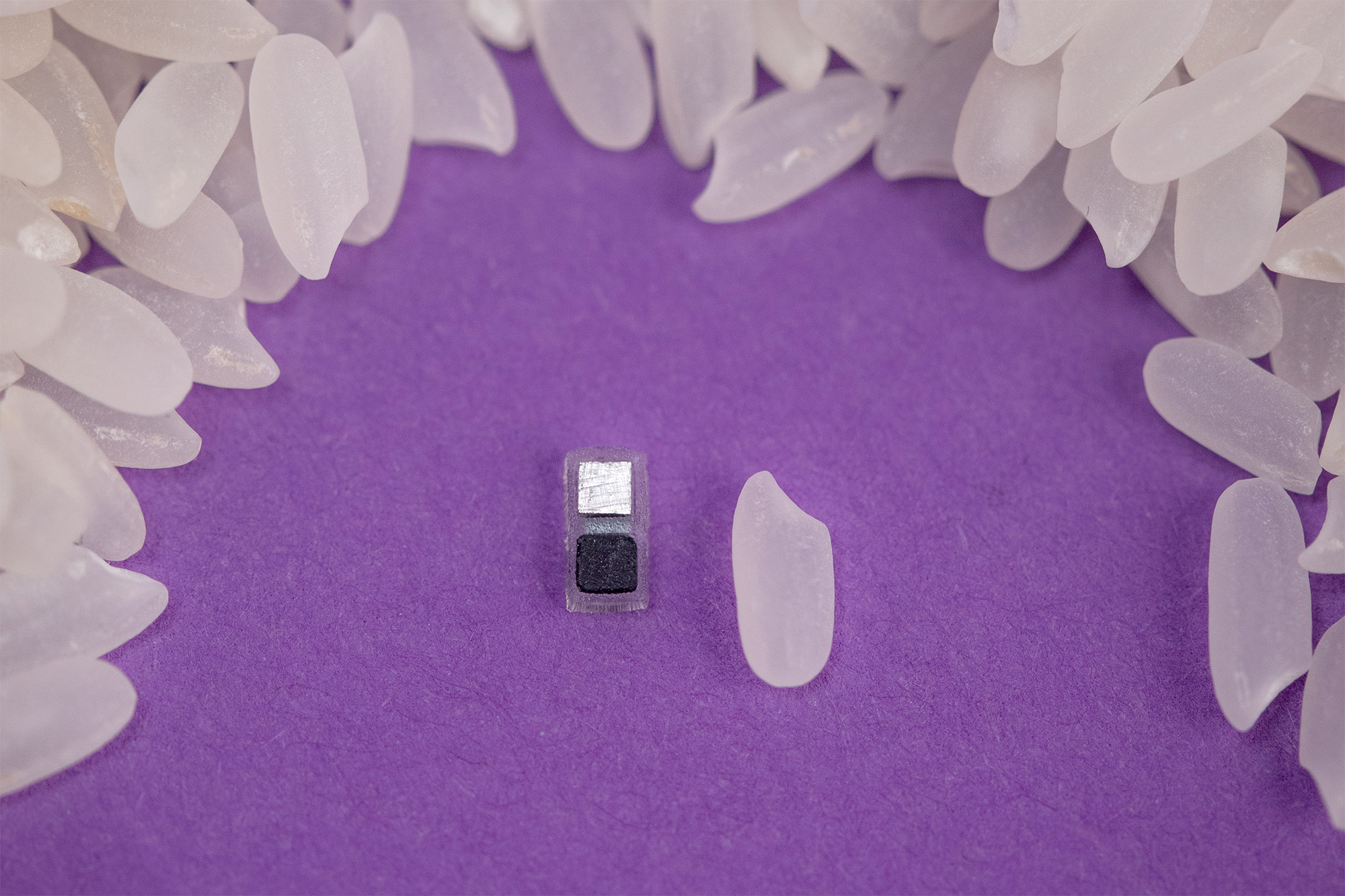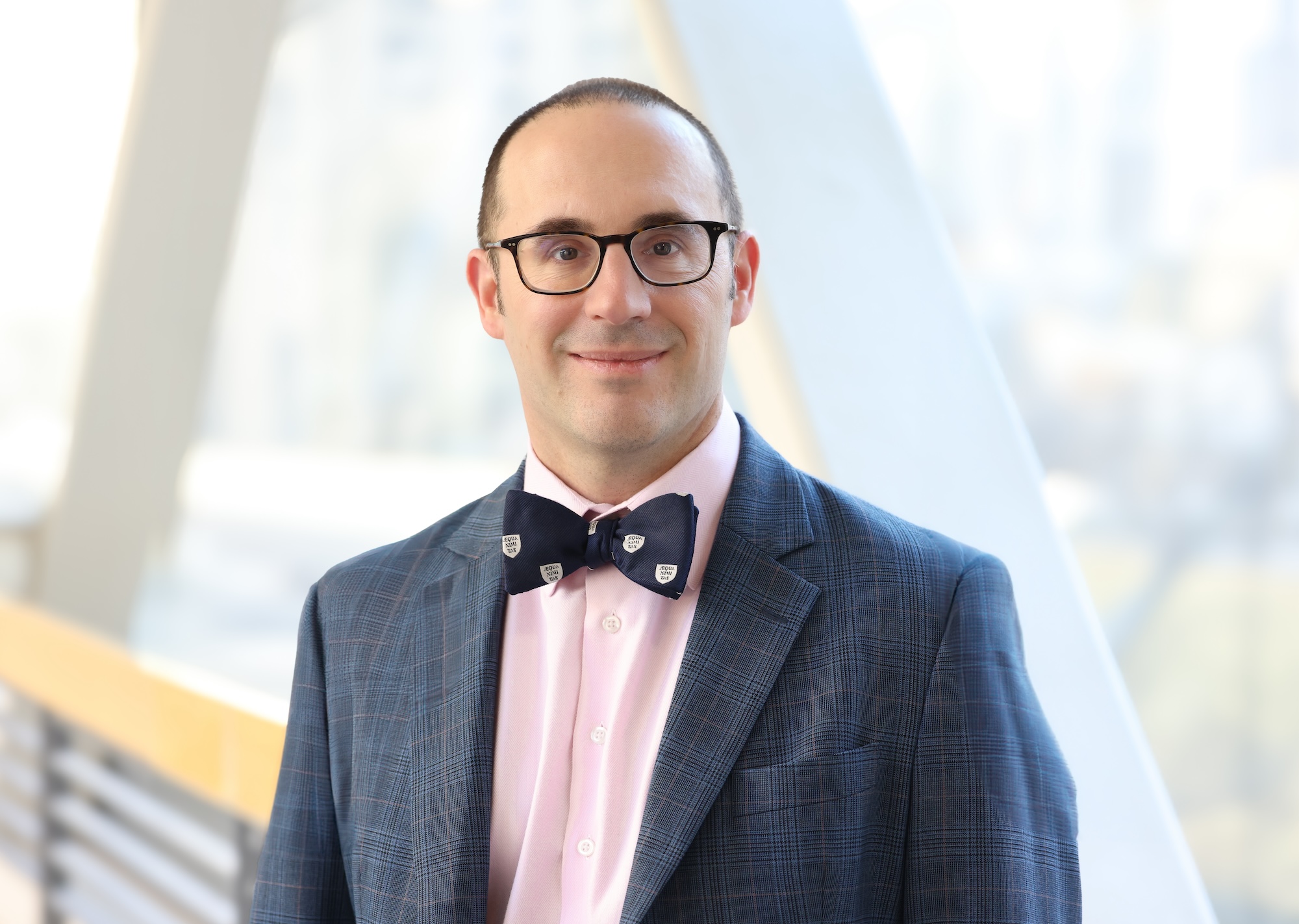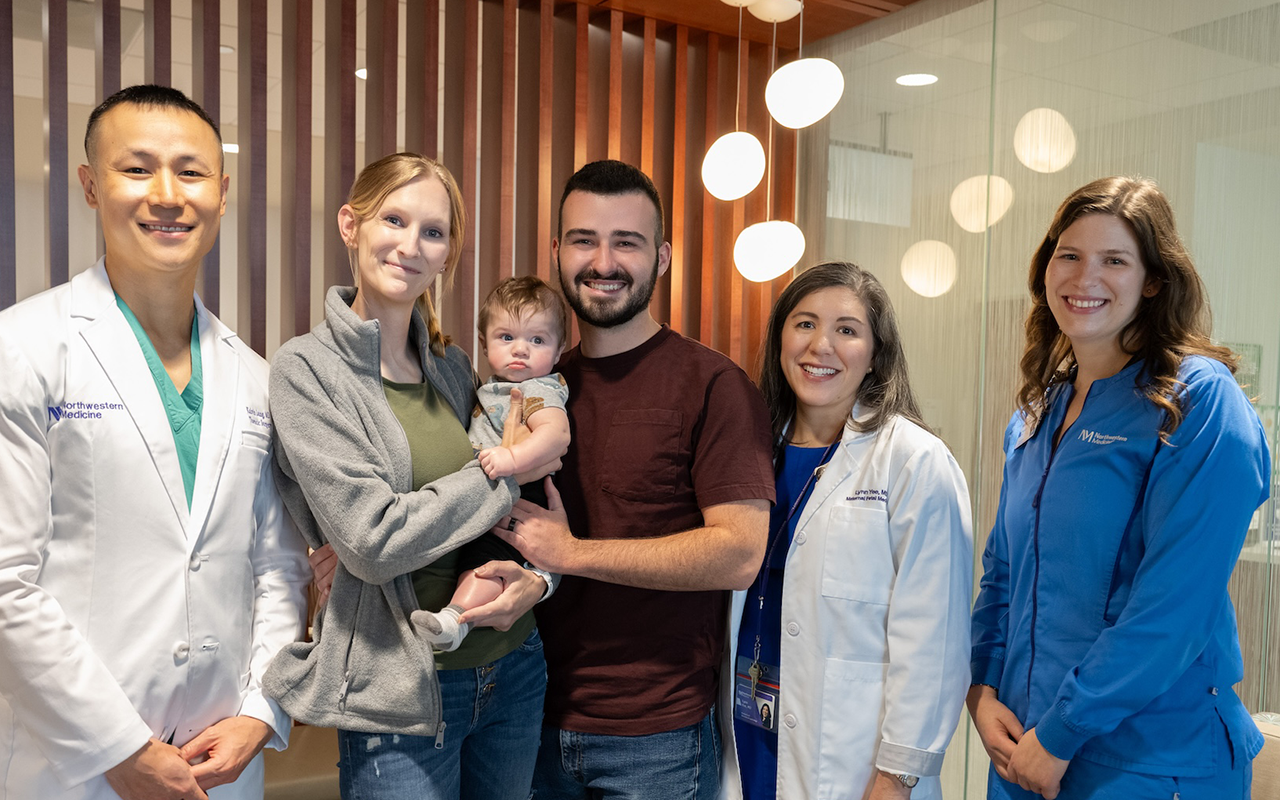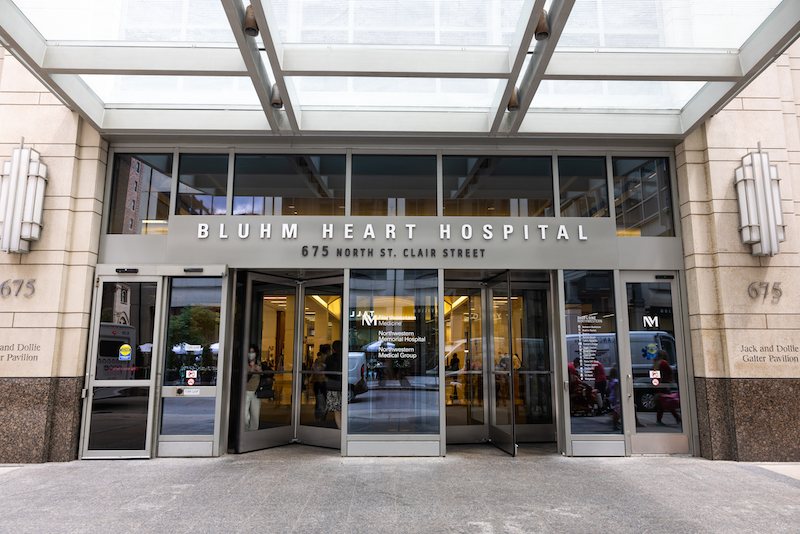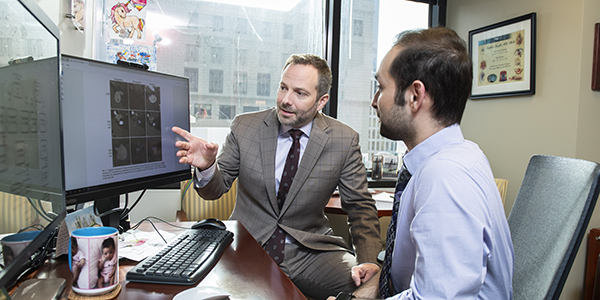Keeping an Eye Out for the Community
Northwestern physicians provide affordable eye care through collaborations with community clinics.
By Bridget Kuehn

As a college student at Northeastern Illinois University’s Bronzeville campus in Chicago, Cheryl Lynn Smalls, 69, needs good vision to plot graphs for her statistics course and for long writing projects.
“Being able to stay on top of my health is more important to me now than ever,” says Smalls, who has diabetes and glaucoma.
Smalls receives regular eye care from Stephen Watson, MD, ’13 GME, a Northwestern Medicine ophthalmologist, at Near North Health’s Komed Holman Health Center on Chicago’s South Side — one of the few federally qualified health centers that offers onsite vision care.
“Near North is filling a void in communities that don’t have easy access to major university medical centers or even community hospitals,” Watson, who is also a health system clinician in Ophthalmology, explains. “It is focused on primary preventive medicine and giving people an option close to home.”
Through a collaboration with Northwestern Medicine, Watson and two other ophthalmologists currently provide eye care for patients at three of Near North Health’s locations in communities on Chicago’s North, South, and West sides where residents tend have lower income and more barriers to medical care. Paul Bryar, MD, ’95, ’98 GME, professor of Ophthalmology and Pathology, began providing this service at the Winfield Moody Health Center on the Near North Side in 2000, followed by Watson in 2014. Anjum Koreishi, MD, ’17 GME, assistant professor of Ophthalmology, joined the team in 2017 and provides care at North Kostner Health Center on the West Side. Bryar estimates that each ophthalmologist sees about 800 patients yearly at Near North’s clinics.
Near North is filling a void in communities that don’t have easy access to major university medical centers or even community hospitals. It is focused on primary preventive medicine and giving people an option close to home.
Stephen Watson, MD
“Once we realized there was a significant need at other locations, we expanded,” Bryar says. A fourth Northwestern Medicine ophthalmologist, David Ramirez, MD, assistant professor of Ophthalmology in the Division of Pediatric Ophthalmology, will soon join the team to offer pediatric vision screening and eye care to Near North Health patients.
“MEDICAL HOME“
According to Bryar, many Near North patients have chronic conditions like diabetes and require annual eye exams to detect and treat diabetic eye disease. Providing specialist and primary care at a single “medical home” makes accessing care easier for these patients.
“Patients prefer it, and they are generally healthier when they can have all their care under one roof,” Bryar maintains. “It’s also easier for medical teams to communicate with each other.”
Smalls says she appreciated the convenience of accessing multispecialty care at Near North’s clinics, as well as the professionalism of her physicians.
“All my physicians at Near North address me with kindness, sincerity, and care,” says Smalls, who has been a patient at the center for more than 15 years and sees a podiatrist and previously saw a nutritionist at Near North clinics.
Bryar noted that about half of Near North’s patients have Medicare or Medicaid, which may offer eye care coverage. Many have no insurance and few options for vision care, which may lead to delayed diagnosis or vision loss. Receiving low or no-cost care through Near North, a nonprofit organization funded by the U.S. Department of Health and Human Services, can help preserve their vision.
“People without insurance or without adequate access to eye care often do not see an eye doctor until they develop symptoms such as vision loss. In conditions such as diabetic eye disease or glaucoma, vision loss may not happen until advanced states of these,” Bryar asserts. “It’s much harder to treat eye disease at later stages, and we have less success. Providing eye care in partnership with Near North allow us to detect eye disease at an earlier stage when it is much more treatable.”
The three Near North clinics offering eye care provide comprehensive exams and manage chronic diseases like glaucoma. In addition, Ramirez joining the team will allow Near North to offer routine pediatric vision exams that are required for school enrollment and allow early identification and treatment for vision loss in children, which can be critical to their success in school and later in life.
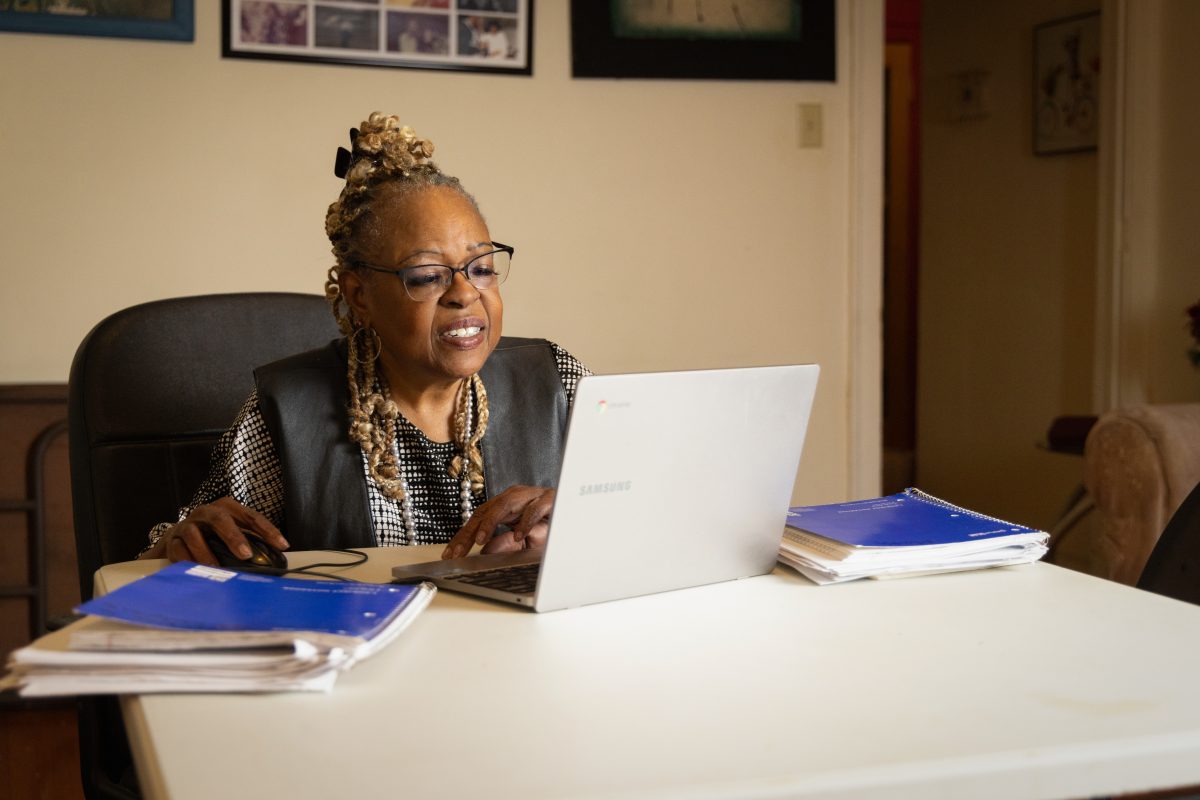
“We have patients that have significant vision problems as children, and if we can identify and treat them early, it provides them the best chance to have healthy vision later in life,” he explains.
“When patients require surgery or subspecialty care, the ophthalmologists working at Near North’s clinics may refer them to colleagues at Northwestern Medicine or Cook County Health who can meet their needs,” Bryar says. In fact, Koreishi points out that helping patients experiencing vision problems navigate the healthcare system is a large part of the job.
“Near North has a great support system to help people get insured or to get them to a place where they can receive specialized care beyond what Near North offers,” Watson says.
Watson noted he appreciated being able to quickly get patients in need of care to Northwestern or help them promptly schedule surgery to ensure they get the care they deserve.
Patients prefer it, and they are generally healthier when they can have all their care under one roof. It’s also easier for medical teams to communicate with each other.
Paul Bryar, MD
“I grew up on the South Side of Chicago, so coming back and helping people who may not have otherwise gotten care has been rewarding,” Watson says. “When those patients eventually return to the Komed Holman Health Center, they are very appreciative.”
Bryar agreed that it is rewarding to be part of the team at Near North working to preserve patients’ vision.
“This started as a pilot program decades ago and has quadrupled in size,” Bryar says. “It demonstrates the need and the importance of collaborations between organizations like Near North and Northwestern Medicine, which have shown a long-term commitment to providing eye care throughout Chicago.”

